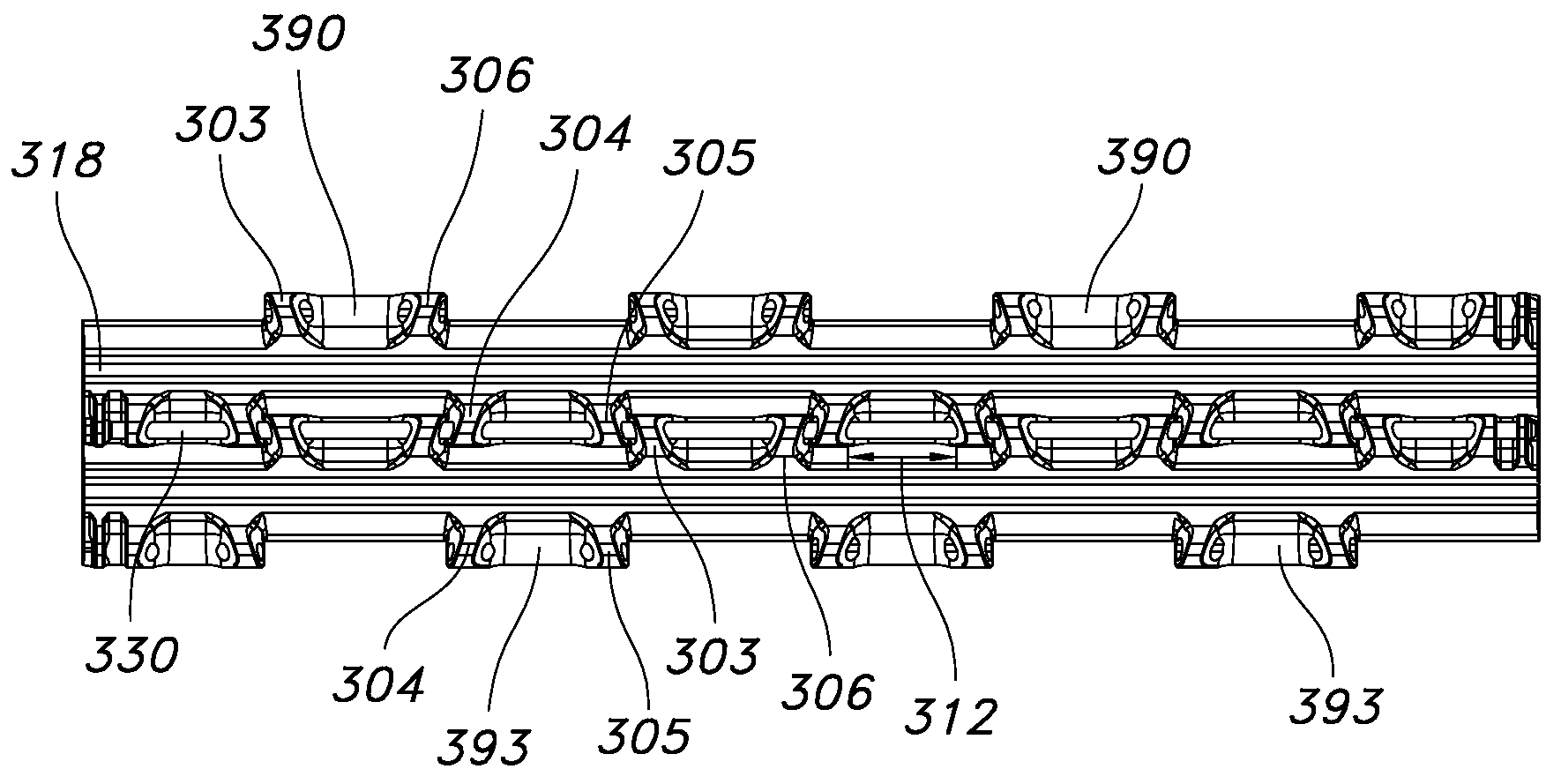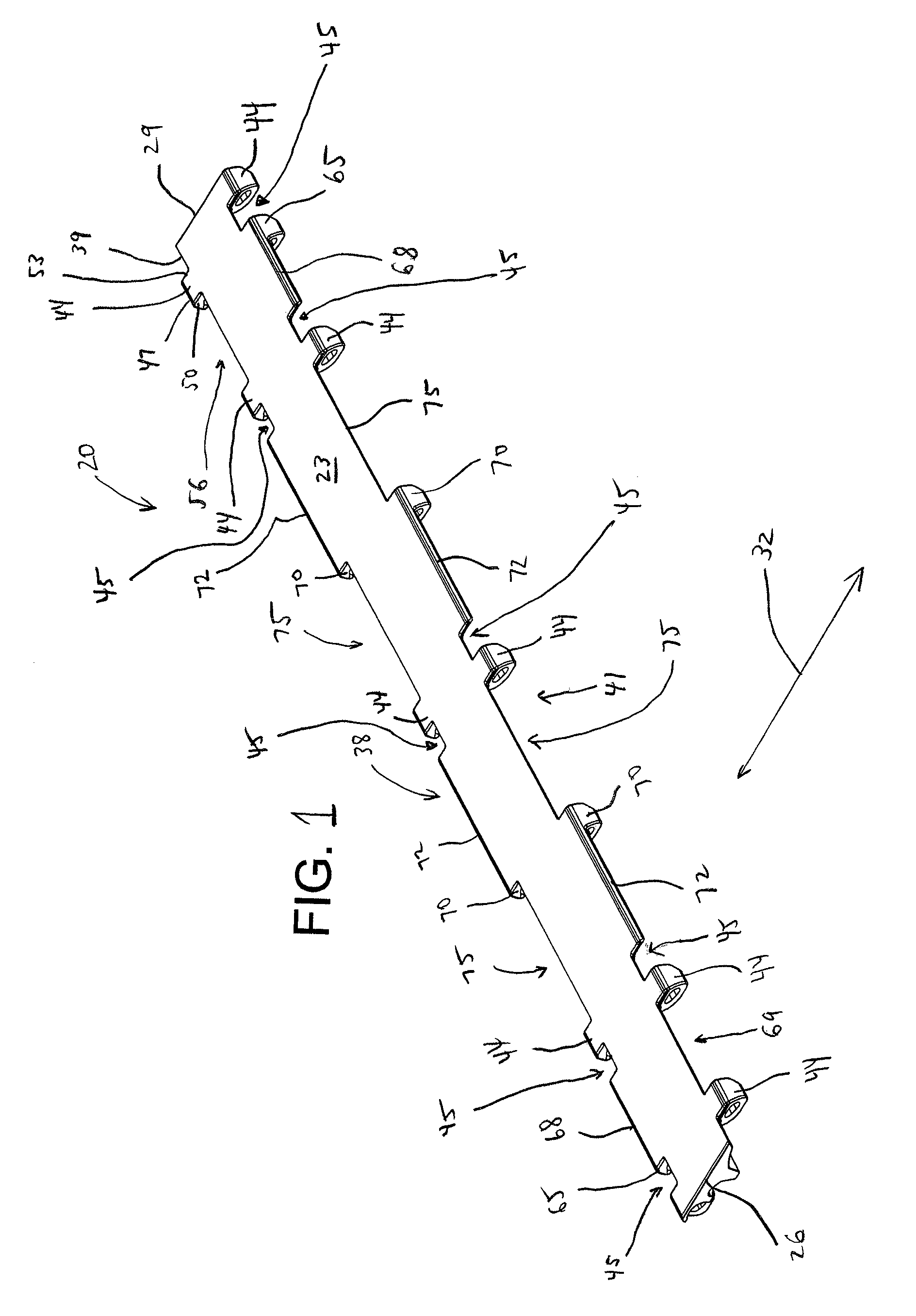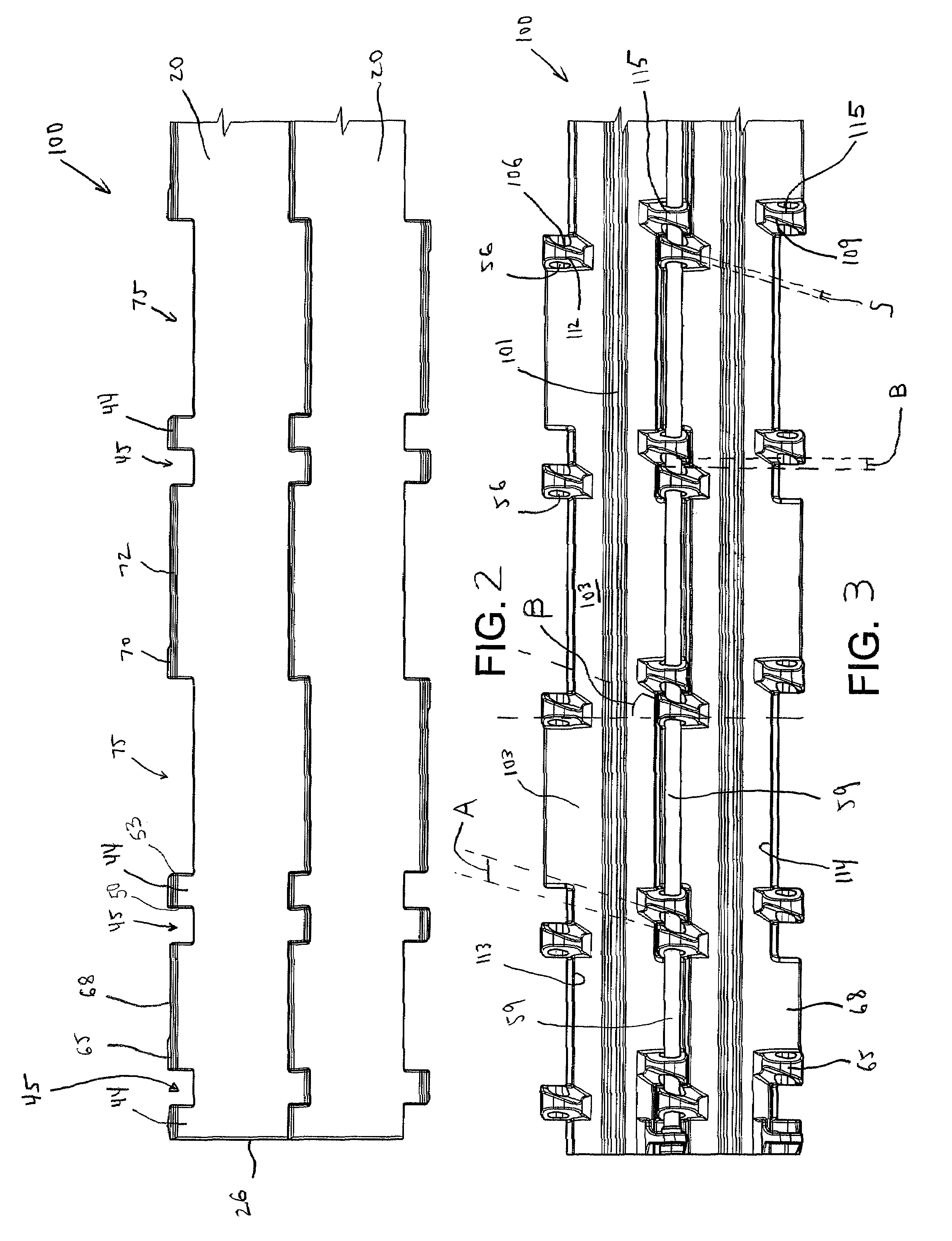Module with large open hinge for easy cleaning
a technology of modular belts and hinges, applied in the direction of conveyors, transportation and packaging, packaging, etc., can solve the problems of difficult removal of residual food deposits, difficulty in adjusting the and gaps in the hinges where the modules are connected, so as to reduce the undesirable elasticity of the belt under load
- Summary
- Abstract
- Description
- Claims
- Application Information
AI Technical Summary
Benefits of technology
Problems solved by technology
Method used
Image
Examples
Embodiment Construction
[0032]In FIG. 1, a belt module 20 of the present invention has an upper conveying surface 23 that is generally smooth and flat. The upper conveying surface 23 extends from a first side edge 26 to a second side edge 29 in a direction transverse to the direction of belt travel indicated by arrow 32. The upper conveying surface 23 also includes a first edge 38 and a second edge 41 disposed opposite from the first edge 38. The shapes of the first and second edges 38 and 41 are defined by a plurality of link ends and openings. The first edge 38 has a first portion 39 extending in a direction transverse to the direction of belt travel. The first portion 39 extends to a first link end 44. The link end 44 forms a portion of the upper conveying surface 23 and also has a rounded end portion 47. The first link end 44 has a pair of side walls 50 and 53 defining a transverse thickness. On the side of the link end 44 adjacent to side wall 53 there is an elongate opening 56 in the conveying surfac...
PUM
 Login to View More
Login to View More Abstract
Description
Claims
Application Information
 Login to View More
Login to View More - R&D
- Intellectual Property
- Life Sciences
- Materials
- Tech Scout
- Unparalleled Data Quality
- Higher Quality Content
- 60% Fewer Hallucinations
Browse by: Latest US Patents, China's latest patents, Technical Efficacy Thesaurus, Application Domain, Technology Topic, Popular Technical Reports.
© 2025 PatSnap. All rights reserved.Legal|Privacy policy|Modern Slavery Act Transparency Statement|Sitemap|About US| Contact US: help@patsnap.com



